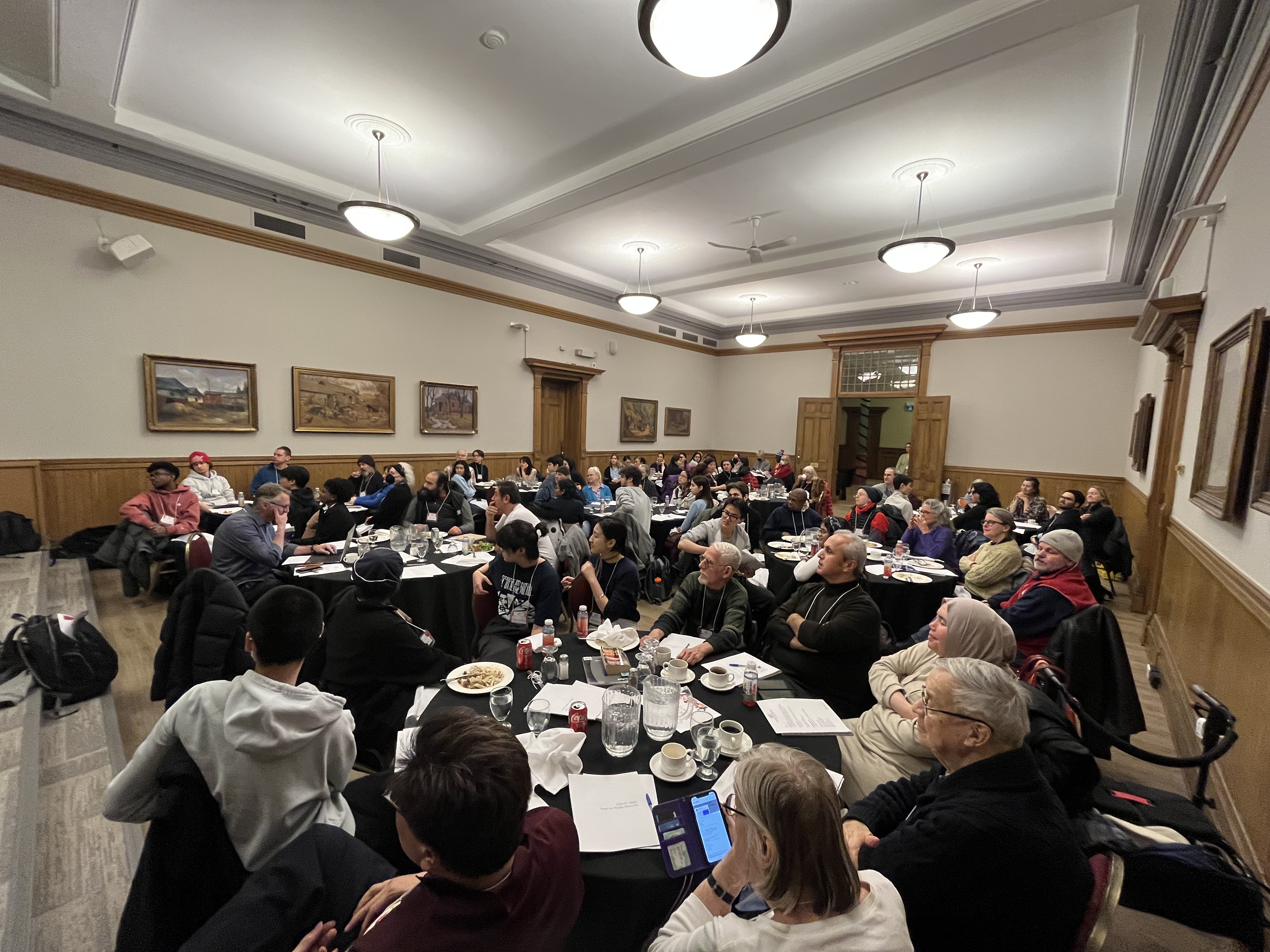
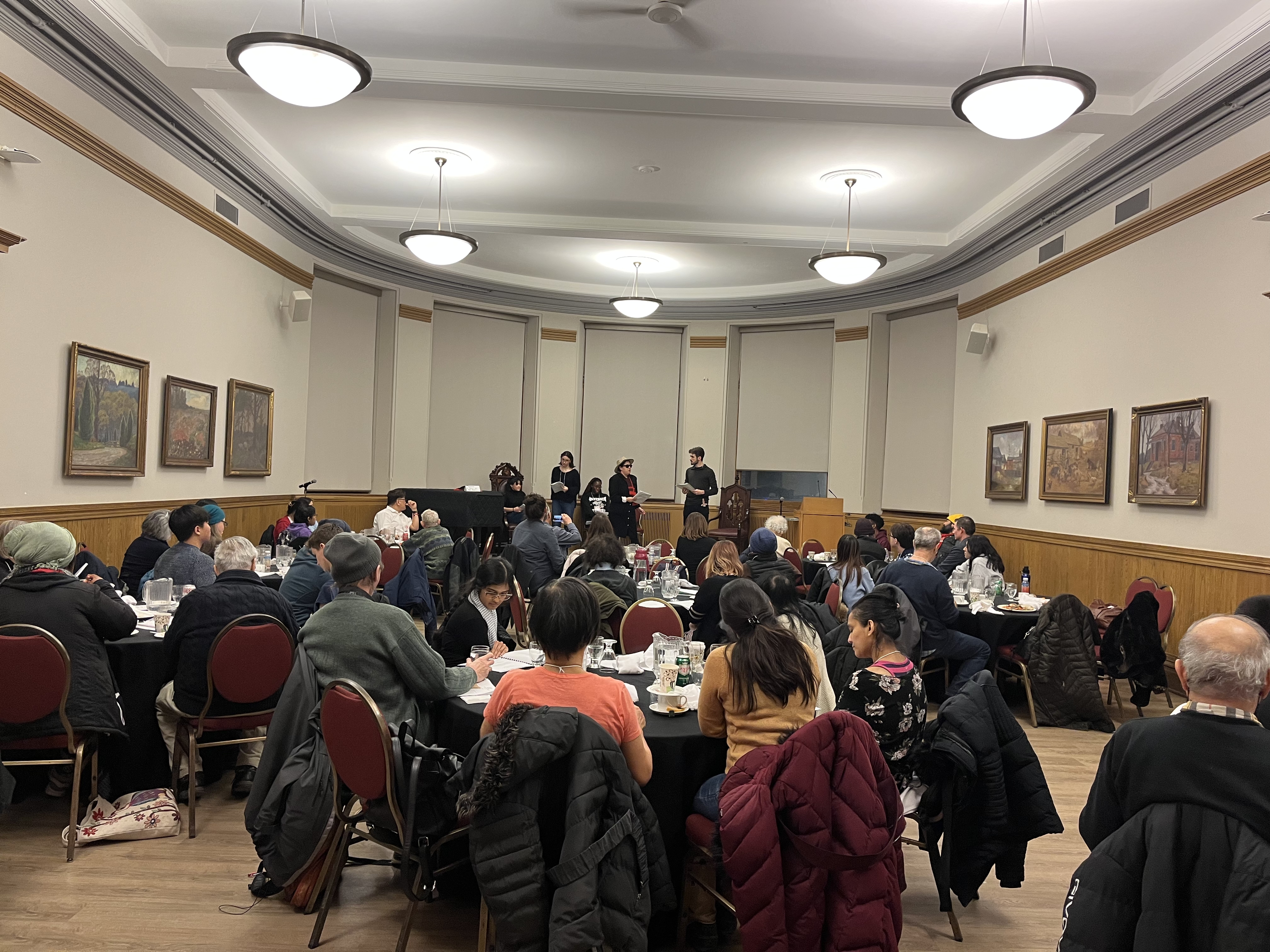
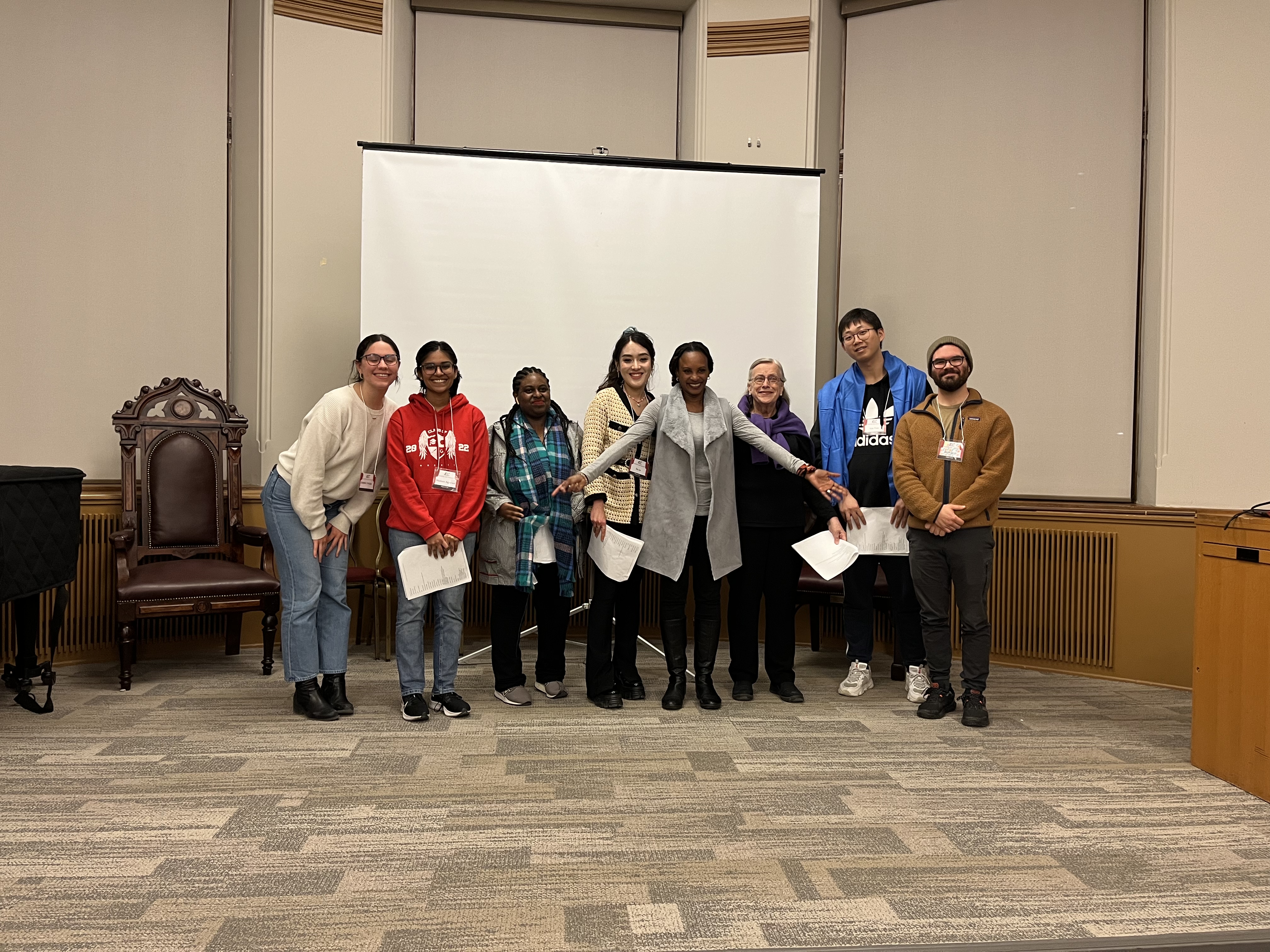
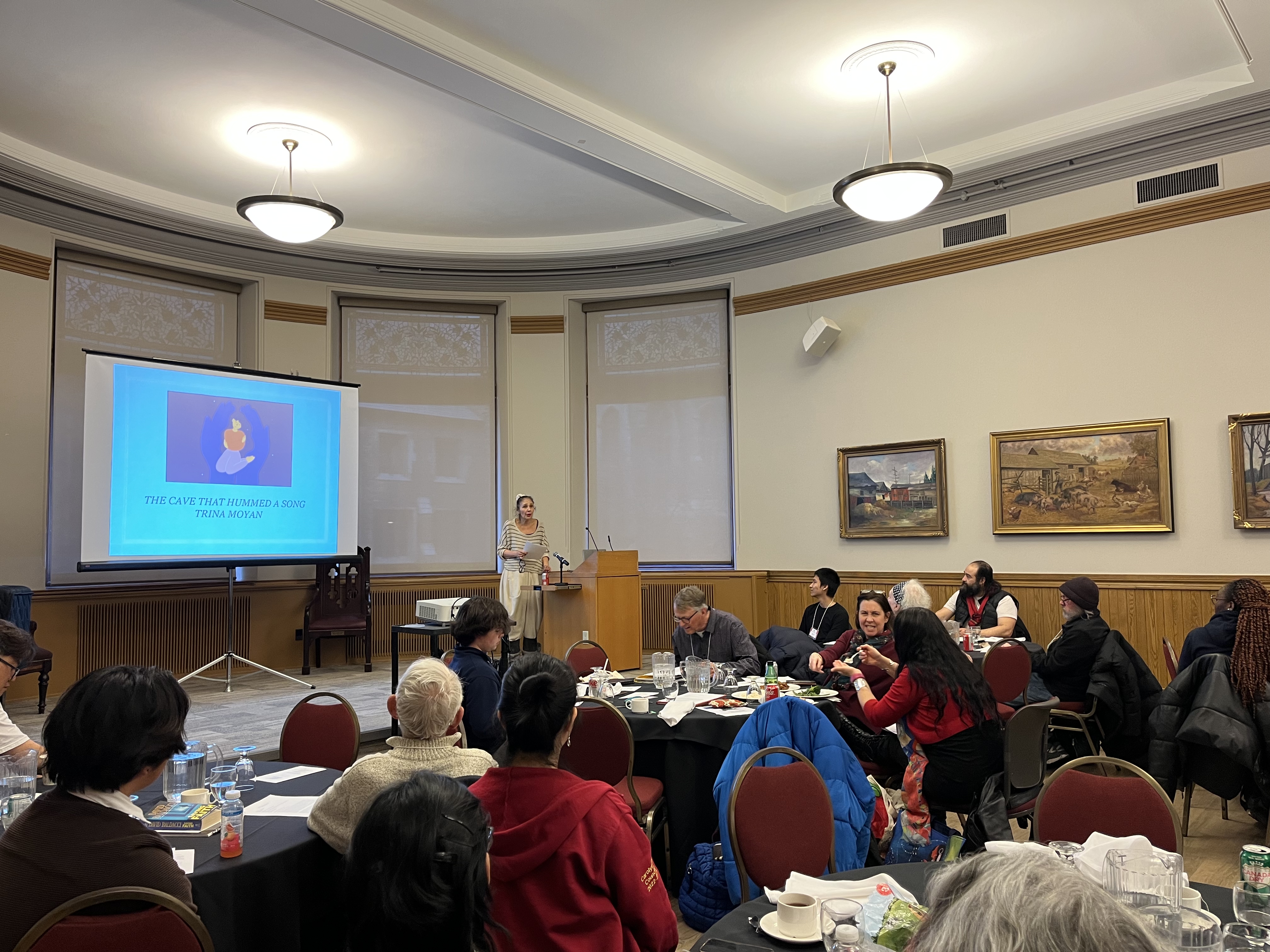
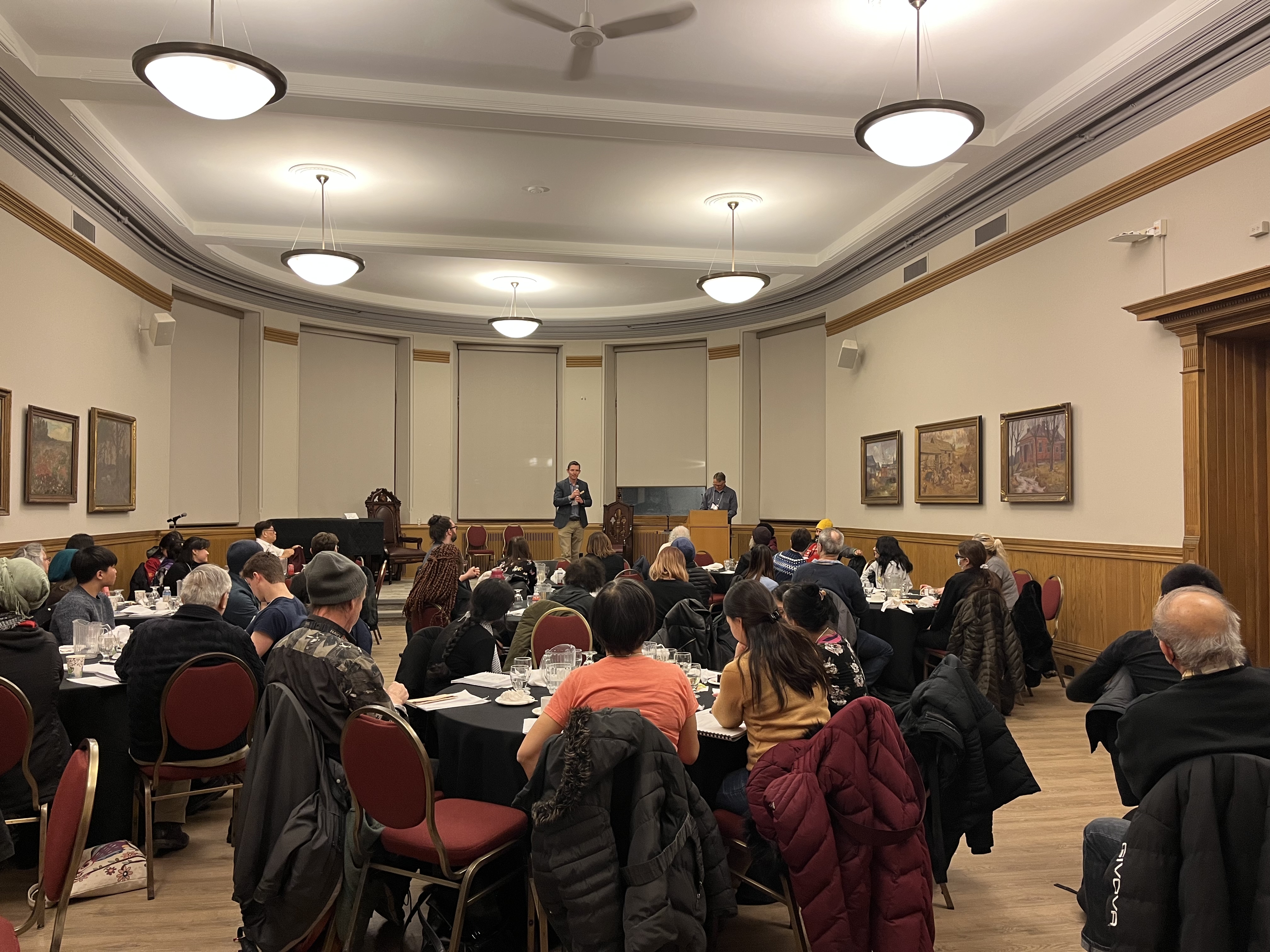
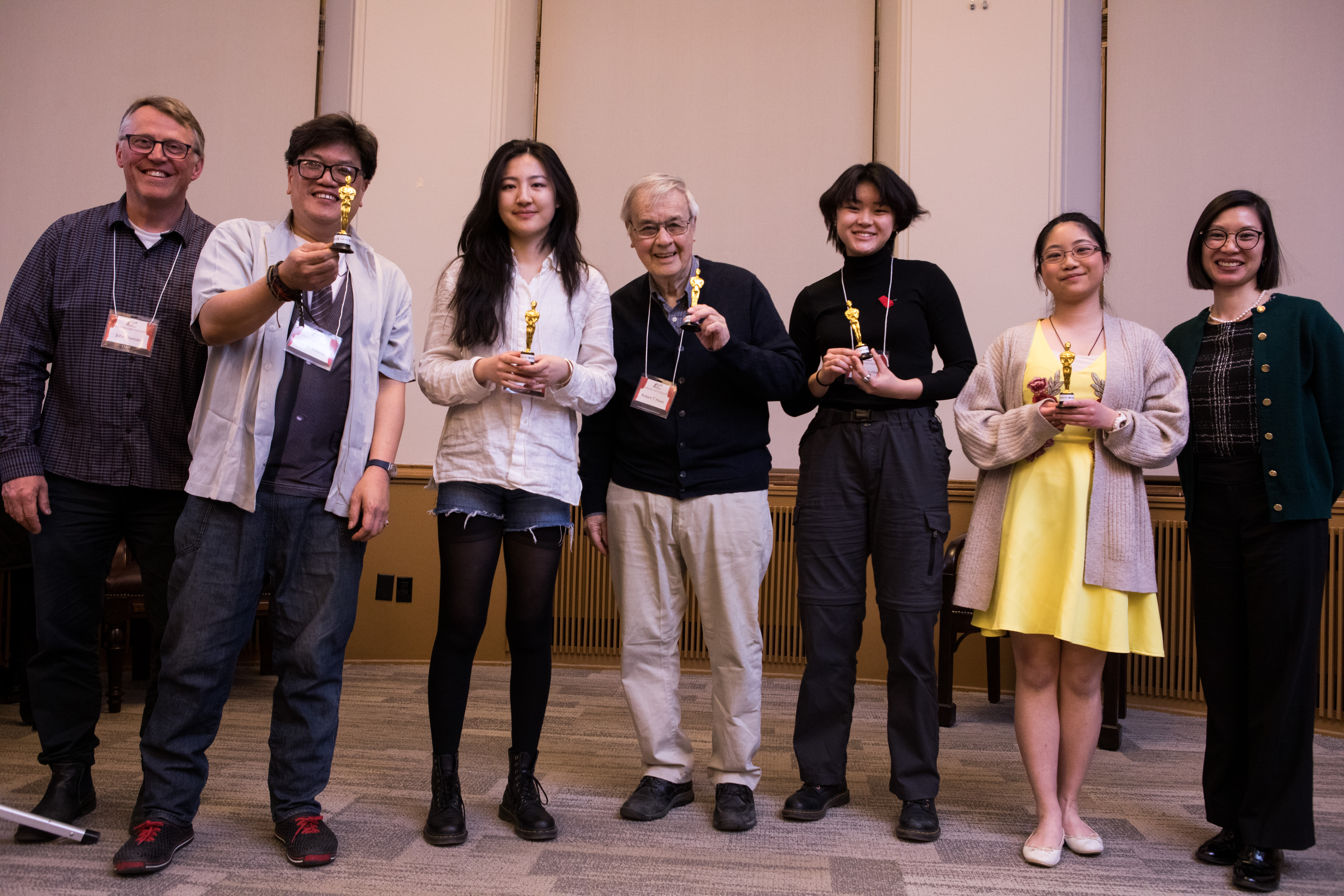
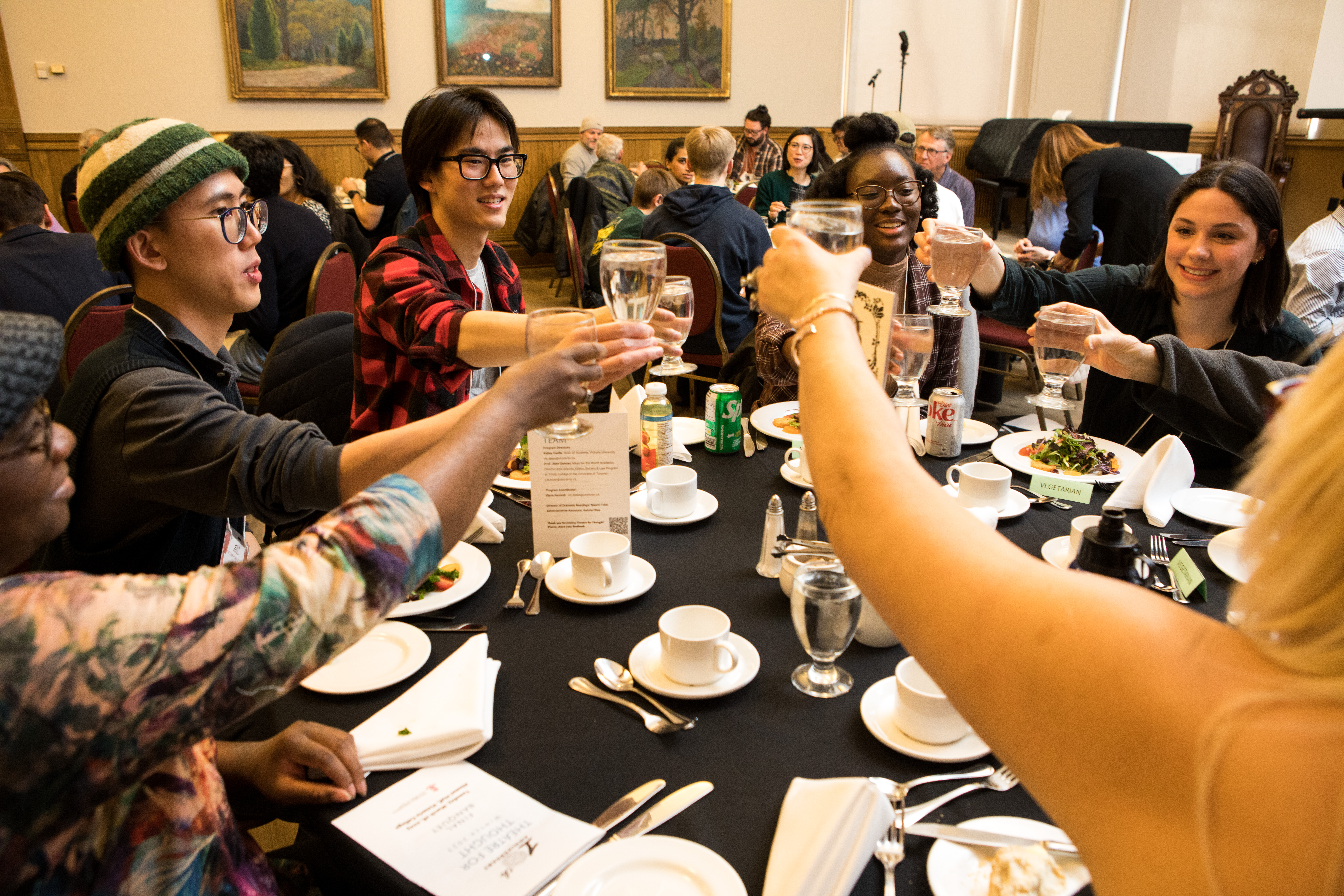
Programs
Victoria University is committed to the belief that our students should have a robust and diverse undergraduate experience.
This program does just that. Ideas for the World blends social interaction, academic reflection, and community awareness (locally and globally). The program is transformative and engaging for all who participate.
Each offering of the program consists of five to ten weekly, seminar-style discussions. Discussions are led by selected U of T faculty and guest speakers.
We offer Humanities for Humanity and Theatre for Thought courses during the fall and winter semesters respectively. See below for more details.
Theatre for Thought
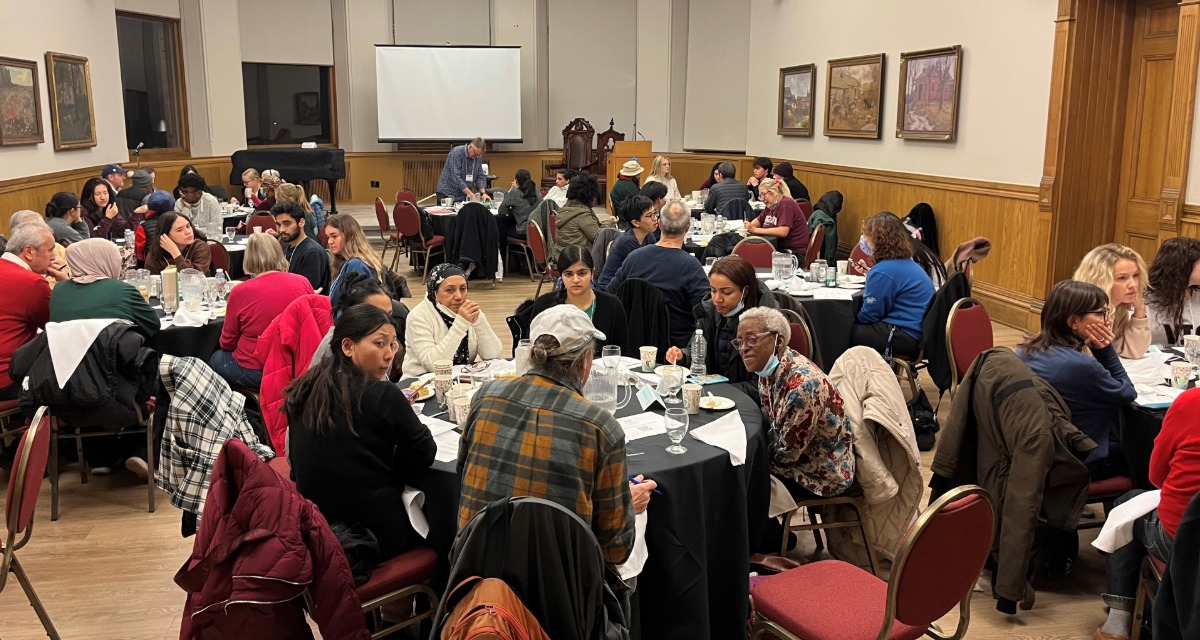
Theatre for Thought (T4T) focuses on theatre and plays. In addition to reading plays weekly, community participants and students work to perform a short excerpt of the play, followed by a discussion. Performing in the plays offers a robust experience, with rehearsals and formal direction provided in advance of the performance date, providing all participants with a unique way of engaging with the material at hand.
Theatre for Thought runs in the winter session every Tuesday evening from 6 to 8:30 p.m., from mid-January to early March.
Registration for our Winter2026 Program is now open for Victoria College, Emmanuel College students and community members.
Community Members Register Here
Please email vic.ideas@utoronto.ca with any questions you may have.
Theatre for Thought, Winter 2026 Dates
- Session 1: Tuesday, Jan. 20 - Introduction to Theatre for Thought
Prof. John Duncan, Director, Ethics, Society & Law Program at Trinity College in the University of Toronto and Dean Kelley Castle, Dean of Students, Victoria University - Session 2: Tuesday, Jan. 27 - Sophocles’ Antigone
Prof. John Duncan, Director, Ethics, Society & Law Program at Trinity College in the University of Toronto - Session 3: Tuesday, Feb. 3 - William Shakespeare’s Othello
Prof. Andrea Walkden, Associate Professor, Department of English, University of Toronto - Session 4: Tuesday, Feb. 10 - R.B. Sheridan’s The School for Scandal
Prof. Alex Hernandez, Principal of Victoria College, Associate Professor of English, University of Toronto
No session on Feb. 17
- Session 5: Tuesday, Feb. 24 - Molière’s Don Juan
Prof. Ira Wells, Academic Programs Director, Office of the Principal, Victoria University - Session 6: Tuesday, March 3 - Henrik Ibsen’s A Doll’s House
Prof. Anna Tomi, Assistant Professor, Department of Slavic and East European Languages, U of T - Session 7: Tuesday, March 10 - Ntozake Shange’s For Colored Girls Who Have Considered Suicide / When the Rainbow Is Enuf
Dr. Rhonda McEwen, President and Vice-Chancellor, Victoria University - Session 8: Tuesday, March 17 - Femi Osofisan's Tegonni: An African Antigone
Prof. Izuu Nwankwo, Assistant Professor, Centre for Drama, Theatre, & Performance Studies, U of T - Session 9: Tuesday, March 24 - Thomson Highway's Aria
Prof. Jill Carter, Associate Director, Centre for Drama, Theatre, & Performance Studies, U of T - Session 10: Tuesday, March 31 - Final Celebration
Session Itinerary
- 6 p.m. – Registration & Dinner
- 6:30 p.m. – Guest’s Presentation (the presentation ends with leading discussion questions)
- 7 p.m. – Dramatic Readings (a group performs scenes from the play)
- 7:30 p.m. – Break
- 7:40 p.m. – Breakout groups (each group reflects on one or two leading questions)
- 8:10 p.m. – Whole group (group representatives report discussion highlights)
- 8:30 p.m. – Wrap up, goodbyes
Humanities for Humanity

Humanities for Humanities (or H4H) brings together student mentors, community participants, faculty and staff to work together through various texts which speak to political, philosophical, economic, literary and historical issues.
The course requires no writing, no essays and no exams, but instead allows all participants to share diverse perspectives.
Discussions will be led by university faculty and staff, and distinguished speakers from across the city. Student mentors are expected to help guide breakout discussions and offer pathways for nuanced commentary on each week’s topics.
Dedicated upper-year students are encouraged to join as mentors, and will receive co-curricular record credit.
Sessions run weekly on Tuesday evenings from 6 to 8:30 p.m. from late September to early December.
Our Fall 2025 Humanities for Humanity program starts on September 23 and runs for 10 weeks until December 2.
Registration is now closed: check back in July, 2026 to register for our Fall16 program.
Please email vic.ideas@utoronto.ca with any questions you may have.
Over the last 10 years, H4H has had over 1,000 participants with over 400 of this number represented by student mentors.
Humanities for Humanity, Fall 2025 Syllabus
- Session 1: Tuesday, September 23 - Introduction to Humanities for Humanity
Prof. John Duncan, Director, Ethics, Society & Law Program at Trinity College in the University of Toronto and Kelley Castle, Dean of Students, Victoria University - Session 2: Tuesday, September 30 - Adam Smith’s Wealth of Nations
Prof. John Duncan, Director, Ethics, Society & Law Program at Trinity College in the University of Toronto - Session 3: Tuesday, October 7 - Bartolomé De Las Casas’ History of the Indies
Victor Rivas, Assistant Professor of Latin American Literary and Cultural Studies, U of T - Session 4: Tuesday, October 14 - Thomas Hobbes selections on Leviathan
Emily Nacol, Associate Professor of Political Theory, Associate Chair Academic, UTM - Session 5: Tuesday, October 21 - Marx and Engels’ Communist Manifesto
Prof. Laura Rabinowitz, Assistant Professor of Trinity College, U of T
No session on October 28 - Session 6: Tuesday, November 4 - Max Weber on bureaucracy
Prof. Daniel Silver, Professor, Department of Sociology, University of Toronto SC - Session 7: Tuesday, November 11 - Simone de Beauvoir’s Second Sex
Prof. Jeri English, Associate Professor, Teaching Stream, Department of Language Studies, U of T SC - Session 8: Tuesday, November 18 - Frantz Fanon’s The Wretched of the Earth
Prof. Ahmed Ilmi, Assistant Professor, Teaching Stream, UTSC - Session 9: Tuesday, November 25 - Dionne Brand’s In Another Place, Not Here
Prof. Vikki Visvis, Lecturer, Department of English, University of Toronto - Session 10: Tuesday, December 2 - Final Celebration
Difficult Conversations
The Provost of the University of Toronto recently appointed the inaugural provostial advisor on civil discourse, as well as a working group to support the university in fostering an environment in which robust dialogue, academic curiosity, and civil engagement on difficult questions can thrive. While the working group was formed following the events of October 7, 2023, its focus is much broader than the challenges to civil discourse that have arisen in response to the Israel-Hamas war or to any other particular contentious issue.
Difficult Conversations in the Ideas for the World program at Victoria College in the University of Toronto is an opportunity for students to get together over lunch to discuss difficult issues in a respectful learning environment.
Participants are asked to treat each other with respect (even if they disagree fundamentally with each other), and all reasonable points of view are welcome. The goal is to learn.
The series facilitator will be:
Professor John Duncan, academic director of the Ideas for the World Program at Vic, and director of the Ethics, Society, and Law program at U of T.
Difficult Conversations, Fall 2025
Time: 11:30 a.m. - 1:00 p.m. (lunch provided)
Location: Copper Room, Goldring Student Centre (150, Charles St. W)
- Thursday, Sept. 18
On Israel/Palestine - Prof. John Duncan - Thursday, Sept. 25
On Race - Prof. Ian Williams - Thursday, Oct. 2
AI Threats to Humanity - Dr. Riccardo Di Sipio - Thursday, Oct. 9
On U of T’s Muslim, Arab, and Palestinian Discrimination Working Group - Prof. Anver Eamon - Thursday, Oct. 16
On Religion - Prof. Randy Boyagoda
CCR Credits
Students can get CCR credits for attending Ideas for the World opportunities
Learn more...
Eligibility Requirements
In order to receive CCR credits, you must be a University of Toronto student and attend a minimum of eight out of ten sessions of Humanities for Humanity or Theatre for Thought.
CCR credits are awarded at the end of each program.
For more information, visit Ideas for the World CCR page.
Higher Education Conferences
The program "Ideas for World" hosts several conferences throughout the academic year, from mental health, to Indigenous Issues, to conflict and society in the media.
Sign up for our Distribution List!
Interested in Ideas for the World programs and conferences?
Sign up for our distribution list and never miss an update!
Media Coverage
See media coverage of the Ideas Program to learn more about its vision and goals.
Ideas for the World: Opening Up the Ivory Tower
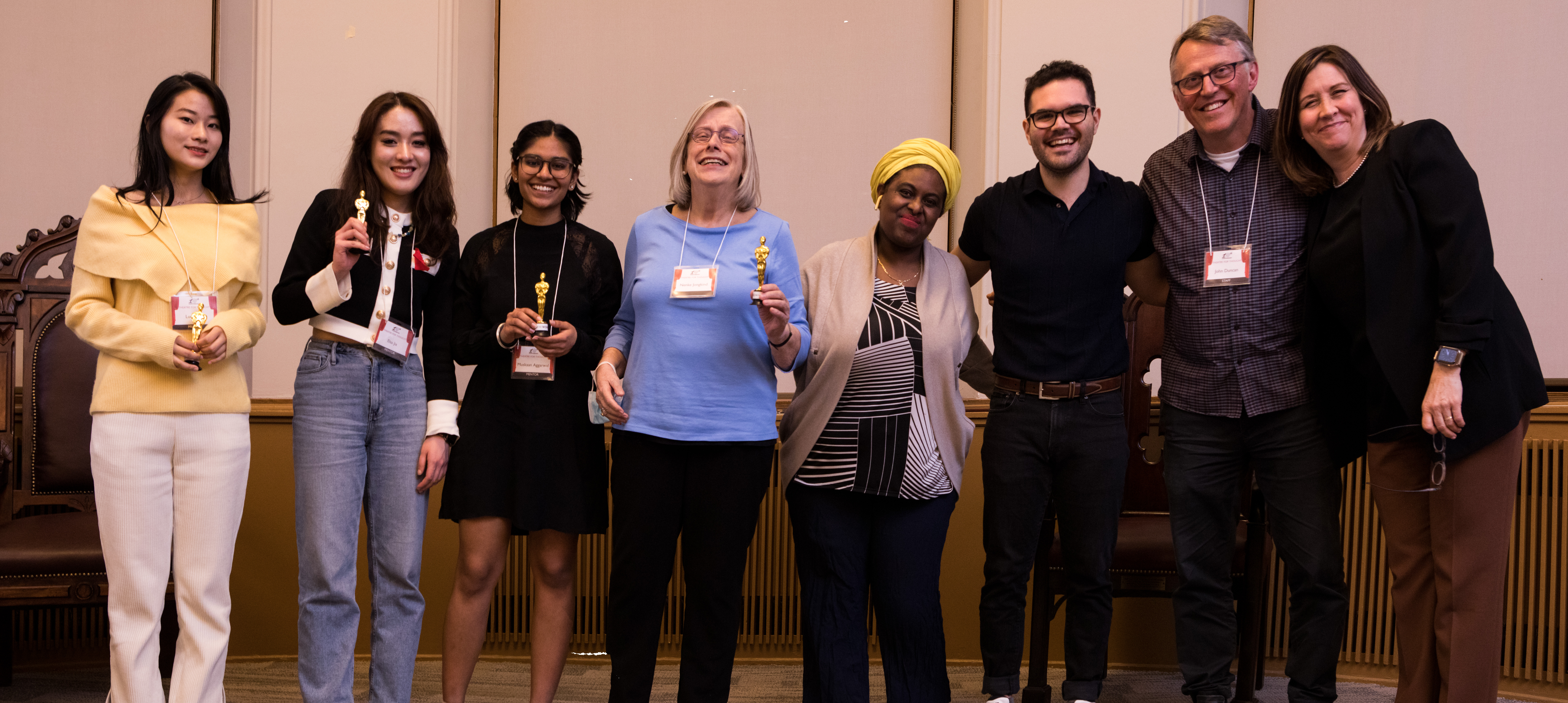
For over 10 years, the unique Ideas for the World program at Victoria University has brought together future leaders and vulnerable community members to learn from top academics — and from each other. The experience demonstrates just how much broadening the conversation benefits everyone.
Ideas for the World: Opening Up the Ivory TowerHumanities for Humanity in the Engaged Scholar Journal
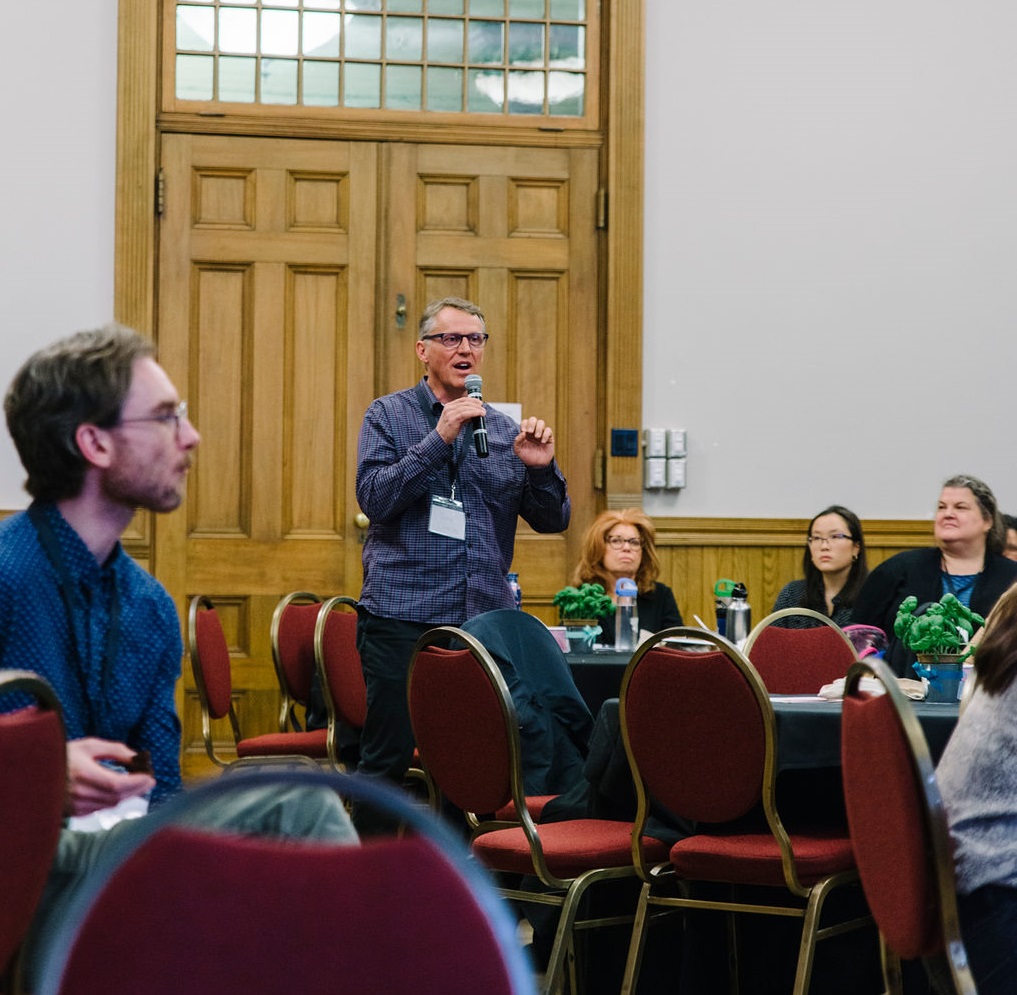
Professor John Duncan, Ideas for the World Academic Adviser and the Director, Ethics, Society & Law Program at Trinity College in the University of Toronto, writes about H4H for the Engaged Scholar Journal.
Abstract
Since 2007, the Humanities for Humanity (“H4H”) course has brought together student experience beyond the classroom, educational experiences for community members who could not otherwise attend university, discussion of social justice, and studies in the humanities. By discussing a selection of rich and influential primary texts from the humanities, course members are introduced to a rudimentary history of the present, focussing on who we have become as members of a concrete social and political reality intersected by capitalism, bureaucracy, liberalism, socialism, anti-essentialism, and post-colonialism. Both the texts and the student-participant encounters are rich, and the sessions are guided by two central classical ideals: the activity of learning is primarily an end in itself, and the most important thing to learn may be who we are. The core course content of H4H is outlined, and the ways in which H4H connects student mentors and community participants are discussed. Implications are drawn regarding what makes H4H a unique form of community service-learning in which service is virtually eclipsed by learning in a process that subverts barriers between people.
Humanities for Humanity in the Engaged Scholar JournalU of T Professor Mark Kingwell Discusses the "Extraordinary Success" of the "Innovative Series"
Excerpt from "A populist wake-up call for universities" in Academic Matters from UofT Philosophy Professor Mark Kingwell.
It happens that this spring is the tenth anniversary of a program run at the University of Toronto called “Humanities for Humanity.” My friends John Duncan and Kelley Castle, along with a host of student and faculty volunteers, have run this innovative series with extraordinary success over this decade.
In the program, people from different walks of city life, recruited through community centres and downtown churches, attend a series of lectures and discussion groups. They read very canonical material and hear from professors interested in the topics. (I have lectured every year on Machiavelli’s The Prince; also lately on Ibsen’s A Doll’s House in a related program called “Theatre for Thought”.) There is a hearty dinner and free childcare, formal certificates at the end, and, above all, an intellectual fellowship I have not seen anywhere else.
Some 500 students have been inspired by the original program over the years, with another 300 graduating from the theatre-based offshoot. These might seem like small numbers, compared to the massive waves of populism that contend with the very idea of a university, and the huge annual intakes of students at all levels of our system. But, I can tell you that there is nothing in my experience more moving than to hear someone, excluded by language or background from regular attendance, wax emotional about the simple chance to attend a university lecture on power, or identity, or faith.
A populist wake-up call for universitiesToronto Star: "University should leave students stirred — and shaken"
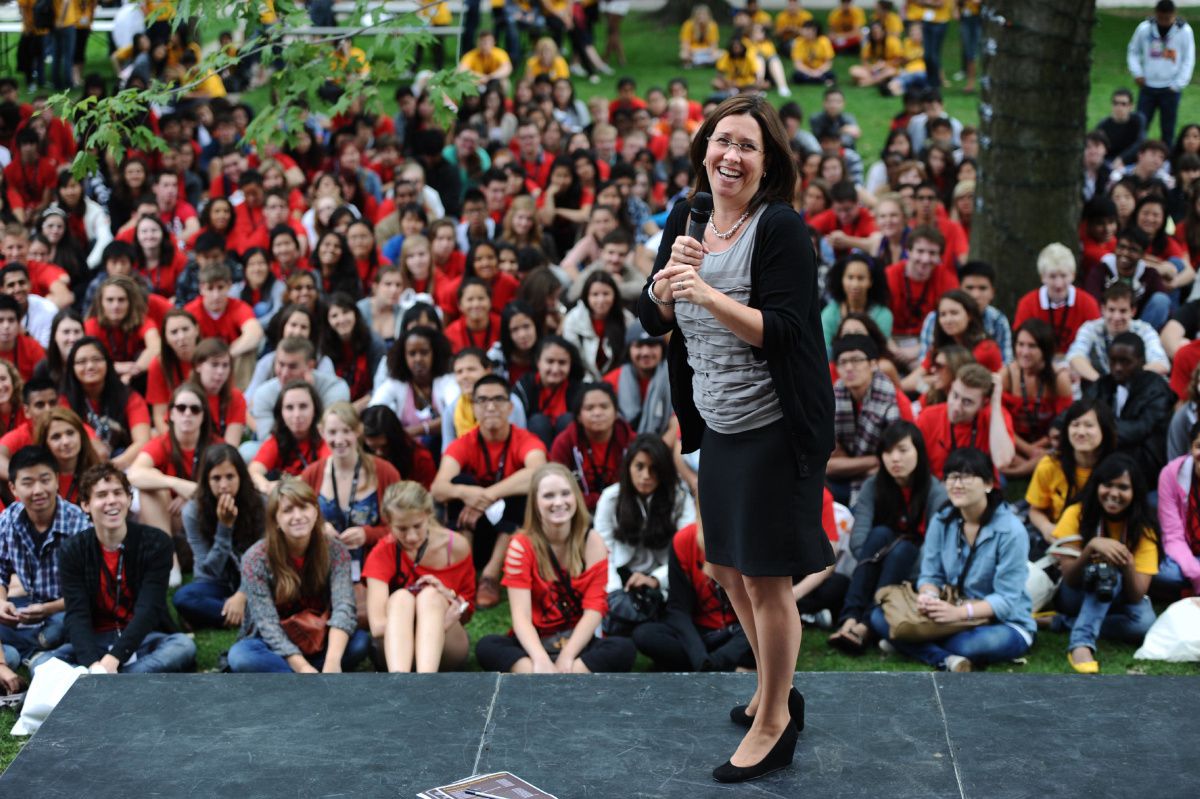
Louise Brown, Education Reporter at the Toronto Star: "University should leave students stirred — and shaken"
Excerpt:
Dean Kelley Castle "the outspoken University of Toronto academic and former community activist has invited members of the public facing hardship — poverty, disability — to join in several of the discussion-based courses on heady topics in science, culture, religion, theatre, the humanities and politics, all part of a post-secondary experiment Castle calls Ideas for the World.
“For too long we’ve created classrooms where students aren’t interested in deep learning; they’re so worried about upsetting their professor, they’re afraid to take a risk,” warned Castle.
“But I really believe university should leave you stirred — and shaken.”
Toronto Star: "University should leave students stirred — and shaken"Dean Kelley Castle "The value of being porous: What universities and cities can do for each other"
Dean Kelley Castle writes about the "The value of being porous: What universities and cities can do for each other" in Academic Matters.
Excerpt:
In a program called Ideas for the World at Victoria College at the University of Toronto, we take a crack at making the walls of the university a bit more porous. The program has 10 sections, all of which are designed around meals. Lunch groups have a cap of 25 students who meet with a different faculty member, public figure, or professional every week for an open discussion led by the guest. Sections have included: Art, architecture and building culture; Culture and conflict in the media; Science in society; Environment and economics; Religion in the public sphere; and The purpose, power and politics of the university.
Weekly topics include such things as what forms our views of scientific doubt and scientific risk, and how the media can influence which wars we think are just. Students consider whether forced quarantine is sometimes socially necessary (for instance with new drug-resistant strains of TB); whether Muslim prayer should be allowed in public schools; whether or how evidence-based medicine represents a shift from traditional paradigms of diagnosing and treating patients. They ask how religion is involved in forming public opinion around international policy (especially in the U.S.); how science, morality, and the law intertwine around the issue of HIV status disclosure; how architecture and power relate; and how the media can sometimes influence people to believe things, even against the evidence. And in the section that considers the university itself (led by our own President, Philosophy Professor Paul Gooch, with various guest speakers) themes have included: why academic freedom is so important; the issue of donors influencing curricular decisions; how the government influences how universities function; and the (not-surprisingly heated) question of who sets priorities for universities and on what basis.
The value of being porous: What universities and cities can do for each other